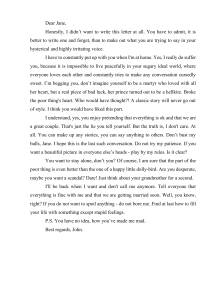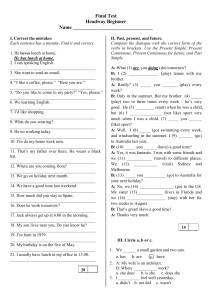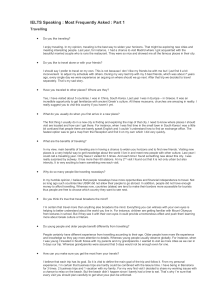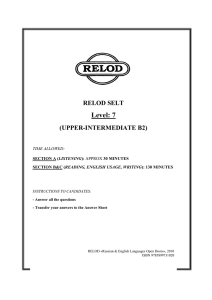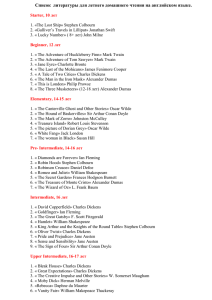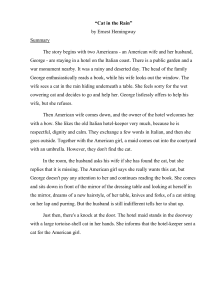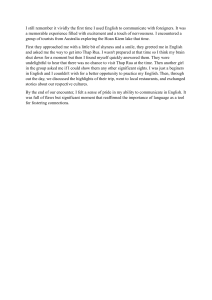Sense and Sensibility - text analysis, 4 курс, ИИЯ, РГПУ Герцена
реклама
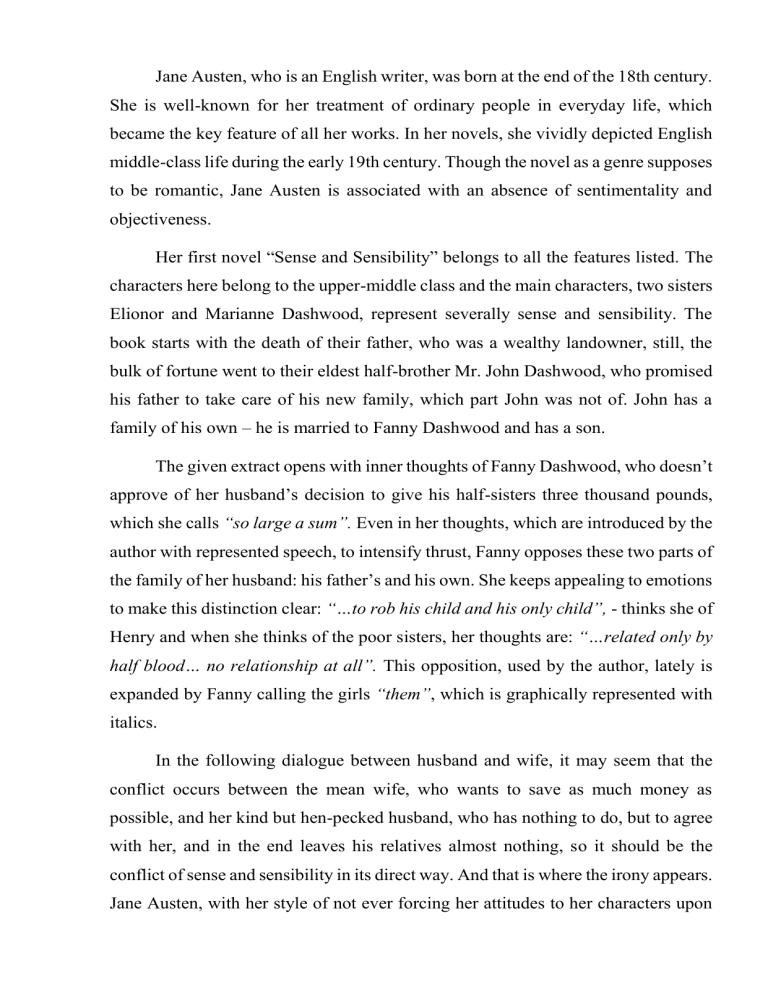
Jane Austen, who is an English writer, was born at the end of the 18th century. She is well-known for her treatment of ordinary people in everyday life, which became the key feature of all her works. In her novels, she vividly depicted English middle-class life during the early 19th century. Though the novel as a genre supposes to be romantic, Jane Austen is associated with an absence of sentimentality and objectiveness. Her first novel “Sense and Sensibility” belongs to all the features listed. The characters here belong to the upper-middle class and the main characters, two sisters Elionor and Marianne Dashwood, represent severally sense and sensibility. The book starts with the death of their father, who was a wealthy landowner, still, the bulk of fortune went to their eldest half-brother Mr. John Dashwood, who promised his father to take care of his new family, which part John was not of. John has a family of his own – he is married to Fanny Dashwood and has a son. The given extract opens with inner thoughts of Fanny Dashwood, who doesn’t approve of her husband’s decision to give his half-sisters three thousand pounds, which she calls “so large a sum”. Even in her thoughts, which are introduced by the author with represented speech, to intensify thrust, Fanny opposes these two parts of the family of her husband: his father’s and his own. She keeps appealing to emotions to make this distinction clear: “…to rob his child and his only child”, - thinks she of Henry and when she thinks of the poor sisters, her thoughts are: “…related only by half blood… no relationship at all”. This opposition, used by the author, lately is expanded by Fanny calling the girls “them”, which is graphically represented with italics. In the following dialogue between husband and wife, it may seem that the conflict occurs between the mean wife, who wants to save as much money as possible, and her kind but hen-pecked husband, who has nothing to do, but to agree with her, and in the end leaves his relatives almost nothing, so it should be the conflict of sense and sensibility in its direct way. And that is where the irony appears. Jane Austen, with her style of not ever forcing her attitudes to her characters upon the reader, uses wonderful stylistic means to represent that it is a conflict of sense and sensibility, still, both John and Fanny lack the latter. It affects the style of the language. The great part of the extract is a dialogue, so the language should belong to the language of everyday life, considering that both of the interlocutors belong to the upper-middle class. But it is different here. The vocabulary of everyday life (such as colloquial interjections (Oh!) or emotionrelated words (poor boy; light-headed)) are merged with business-related terms (sum, fortune, interest, annuity, etc.), which seem even professional as if the couple were lawyers. I believe that it is done not only to emphasize the grotesque of the situation but also to depict this family’s intentions to take a higher place in society. So, there is no wonder that they should save money. Though, it looks surrealistic as they still try to persuade themselves that their motives are noble when it comes to diminishing the sister’s part to the minimum. It is vividly seen in various repetitions of the word “comfortable”, which follows almost every decision to lessen the amount of money to be parted with, or in the following: "I would not wish to do anything mean … No one, at least, can think I have not done enough for them: even themselves, they can hardly expect more." "There is no knowing what THEY may expect… but we are not to think of their expectations: the question is, what you can afford to do." The character’s cynicism and greed create a very pathetic and gloomy mood because in the end the girls and their mother are left only with a house, even china and linen are too much to give them, according to Fanny. At this point, gradation: “They will live so cheap! Their housekeeping will be nothing at all. They will have no carriage, no horses, and hardly any servants; they will keep no company, and can have no expenses of any kind!”, - could not be any better to depict the miserable destiny of the poor sisters. And the following sentence: “Only conceive how comfortable they will be!”, - only emphasizes this feeling as is dissonances with the real facts. This tension, which started with the very first words of Fanny about her opinion on giving the girls any money is gone with her very last words, where she breaks the bond between her husband’s father and her husband: “Your father thought only of THEM. And I must say this: that you owe no particular gratitude to him, nor attention to his wishes; for we very well know that if he could, he would have left almost everything in the world to THEM”, - so that the reader cannot expect more from this dialogue, as everything was on its places then. The following words of the author, which did not appear much previously, only prove that point. Saying that “this argument was irresistible”, Jane Austen draws a line. There is no more hope for sensibility, for any humanistic features, which should be present in all human beings, and there won’t be.
